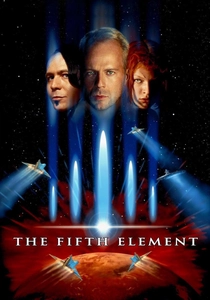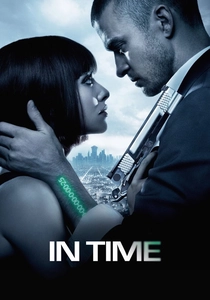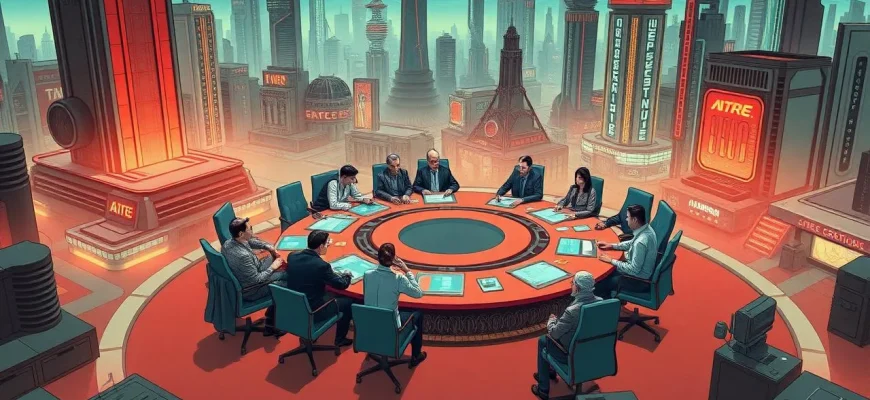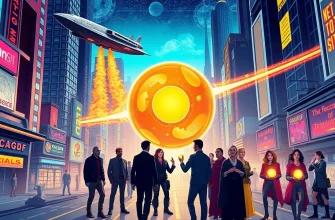In the realm of science fiction, the world of management often takes on new dimensions, where corporate strategies, futuristic technologies, and ethical dilemmas intertwine. This curated list of 10 sci-fi films showcases managers in extraordinary settings, offering viewers a unique blend of business acumen and speculative storytelling. From dystopian futures to interstellar corporations, these films provide a fascinating look at leadership in the face of the unknown, making them a must-watch for anyone intrigued by the intersection of management and science fiction.

The Fifth Element (1997)
Description: Zorg, the corporate manager, navigates the complexities of interstellar trade and weaponry, showcasing the darker side of management in a universe where profit often trumps morality.
Fact: The film features a cameo by Jean-Paul Gaultier, who also designed the costumes for the movie.
 Watch Now
Watch Now

Gattaca (1997)
Description: In a genetically engineered society, managers like the Gattaca Corporation's executives control access to space travel, showcasing the ethical dilemmas of genetic discrimination in management.
Fact: The film's title is a combination of the letters from the four DNA nucleotides: Guanine, Adenine, Thymine, and Cytosine.
 Watch Now
Watch Now

The Matrix (1999)
Description: While not explicitly about managers, Morpheus can be seen as a manager of the human resistance, guiding Neo through the complexities of a simulated reality, making strategic decisions to free humanity from the Matrix.
Fact: The film's iconic bullet time effect was developed specifically for this movie, revolutionizing action sequences in cinema.
 Watch Now
Watch Now

Equilibrium (2002)
Description: In a future where emotions are outlawed, Father, the leader of the Tetragrammaton Council, manages the suppression of feelings, exploring themes of control and conformity in management.
Fact: The film's gun kata, a fictional martial art, was created specifically for the movie.
 Watch Now
Watch Now

The Island (2005)
Description: The facility's managers control the lives of clones, making decisions about their existence, showcasing the ethical implications of managing human life as a resource.
Fact: The film's concept of clones living in a controlled environment was inspired by the idea of human cloning and its ethical dilemmas.
 Watch Now
Watch Now

The Adjustment Bureau (2011)
Description: The Adjustment Bureau, a mysterious organization, manages human destinies, with agents acting as managers to ensure people follow their predetermined paths, exploring themes of free will versus control.
Fact: The film is loosely based on Philip K. Dick's short story "Adjustment Team."
 Watch Now
Watch Now

Elysium (2013)
Description: Delacourt, the Secretary of Defense on Elysium, manages the space station's operations, showcasing the stark contrast between the elite and the underprivileged, highlighting the role of management in societal division.
Fact: The film was shot in Vancouver, Canada, with the space station scenes created using a combination of practical sets and CGI.
 Watch Now
Watch Now

In Time (2011)
Description: In a world where time is currency, managers like Philippe Weis control the flow of time, making life-or-death decisions daily. The film explores themes of corporate power and time management in a literal sense.
Fact: The film's concept of time as money was inspired by the idea of how time is often equated with money in our society.
 Watch Now
Watch Now

Brazil (1985)
Description: Sam Lowry, a low-level government employee, navigates a bureaucratic dystopia, where managers control every aspect of life, highlighting the absurdity and inefficiency of bureaucratic management.
Fact: The film's title refers to the song "Aquarela do Brasil," which plays during the dream sequences.
 30 Days Free
30 Days Free

The Circle (2017)
Description: Mae Holland's journey at the Circle, a tech company, explores the management of privacy, transparency, and surveillance, reflecting on how corporate leaders shape society through technology.
Fact: The film is based on Dave Eggers' novel of the same name, which critiques the tech industry's influence on privacy.
 30 Days Free
30 Days Free









